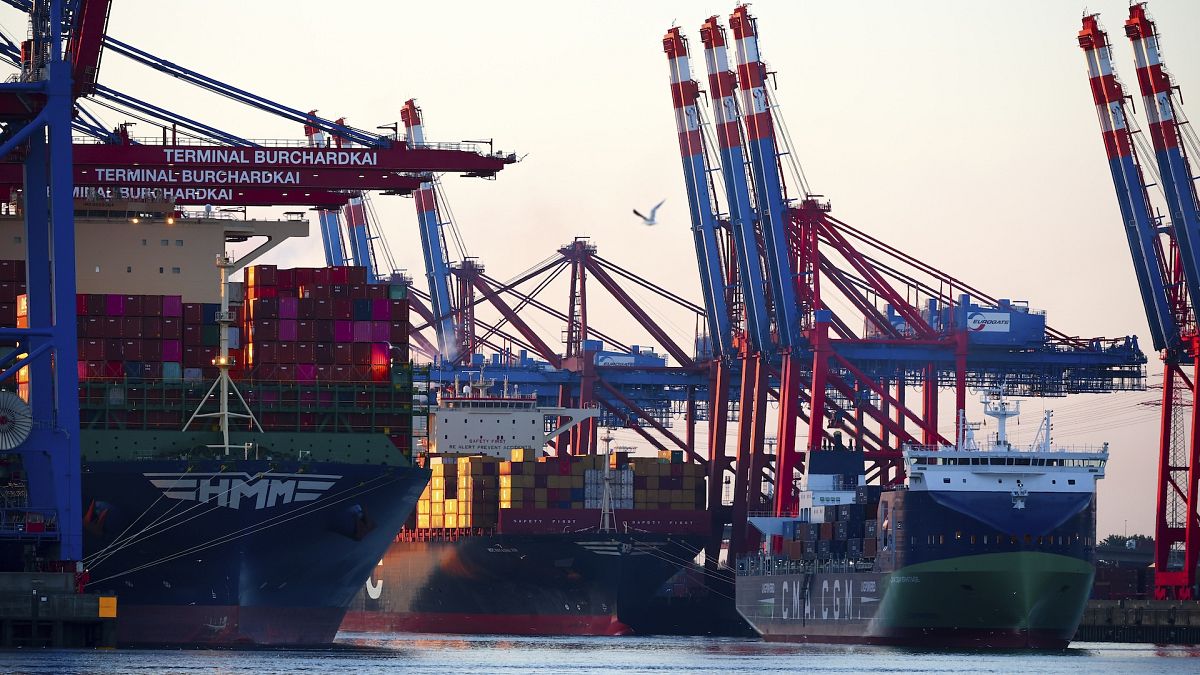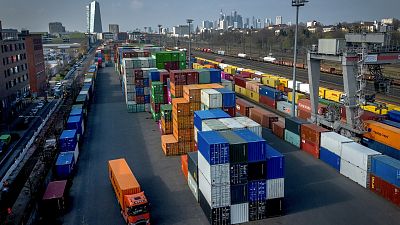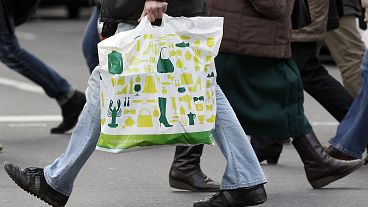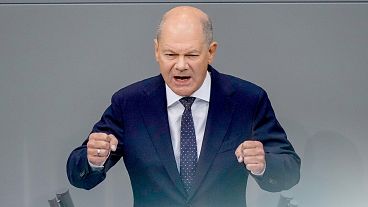Germany and the eurozone's economic sentiment plunged in August, driven by global trade slowdown, stock market turmoil, and Middle East tensions.
The ZEW Economic Sentiment Index, a key indicator that gauges the expectations of financial experts, fell dramatically from 41.8 points in July to just 19.2 points in August.
The falling sentiment reflects growing pessimism about the country's outlook and highlights broader concerns for the eurozone.
The decline not only undershot market expectations of a more moderate drop to 32 points but also marked the most significant monthly deterioration since July 2022.
Similarly, the eurozone's broader economic sentiment also deteriorated, with the corresponding index dropping from 43.7 to 17.9 points, the lowest since February and well below the expected 35.4. The drop of 25.8 points represented the most severe monthly deterioration in the bloc's economic morale since April 2020.
The assessment of Germany's current economic situation also worsened, with the relevant indicator falling by 8.4 points to minus 77.3 points. However, the eurozone's situation indicator showed a slight improvement, rising by 3.7 points to minus 32.4 points.
Why has Germany and eurozone sentiment worsened?
The eurozone's economic powerhouse has been facing a series of economic challenges that have shaken its already shallow recovery in 2024.
A slowdown in global trade, exacerbated by weakening demand in key markets like China, has weighed heavily on Germany’s export-driven economy.
"The economic outlook for Germany is breaking down. In the current survey, we observe the strongest decline of the economic expectations over the past two years," said ZEW President Professor Achim Wambach, PhD on the survey results.
Wambach highlighted that ongoing uncertainty, driven by ambiguous monetary policy, disappointing US business data, and escalating tensions in the Middle East, has contributed to the decline in sentiment.
"Most recently, this uncertainty expressed itself in a turmoil on international stock markets," he added.
The survey indicated worsening sentiment across key stock market indices, with experts' morale in the DAX and STOXX 50 declining by 6.5 and 4.6 points, respectively.
Financial market analysts also turned bearish on the US dollar, anticipating that economic weakness and potential Federal Reserve interest rate cuts would weigh on the greenback. The sentiment gauge for the dollar's strength against the euro fell by 24.2 points month-over-month to minus 7.9 points.
Sector-wise, the sentiment has declined across almost all major sectors, with the exception of utilities, which saw a marginal increase of 0.7 points.
The most significant declines were observed in economically sensitive sectors such as retail and consumer goods, which fell by 24.2 points, reflecting concerns about weakening consumer demand amid high inflation and rising interest rates. Other sectors that experienced sharp declines include electronics, which dropped by 18.1 points, and chemicals and pharmaceuticals, which fell by 17.2 points.
Market Reactions
Despite the dire economic sentiment data, market reactions were relatively muted. The euro remained stable at 1.0920 following the release of the ZEW figures.
The Euro STOXX 50 index also showed resilience, rising by 0.3% during the session. Strong performers within the index included Siemens AG, Sanofi, and Enel Spa, which saw gains of 1.5%, 1.2%, and 1.1% respectively.
Among the major country indices, Spain's IBEX 35 outperformed its peers, rising by 0.5%, while France's CAC 40 remained flat. In Germany, Siemens Energy AG led the gains, with a 2.6% increase, while Sartorius AG, a pharmaceutical and laboratory equipment provider, fell by 3.7%.
In France, luxury brands such as LVMH, Kering, and Hermes saw slight declines, reflecting concerns about slowing demand in key markets.
In Spain, Caixa Bank rose by 1.7%, while Grifols, a pharmaceutical company, tumbled by 5.3% following news of a potential securities law investigation.















